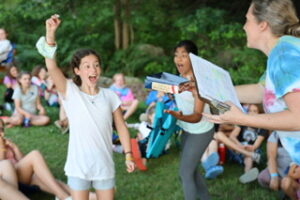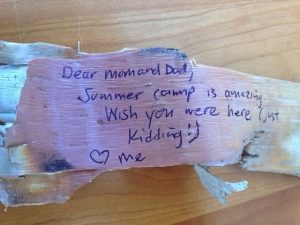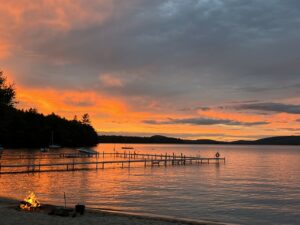Letters are a love language here at camp, and with our campers’ penpals assigned and so many letters written and sent already, I’m thinking more than ever about the language of letter-writing during the summer.
With hand-written letters as our families’ main portal into their campers’ summer, the writing and reading of them is a more important experience, and more nuanced, than many of us realize.
Read on for a comprehensive guide to communicating with your camper through snail mail this summer, including science-backed recommendations and the do’s and don’t’s of letters.
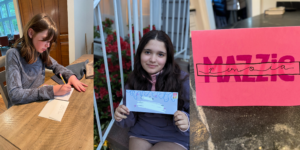
Receiving a sad or homesick letter
Dr. Tracy Brenner, “The Camp Counselor”, shared something in a recent webinar with the Maine Camp Experience that has stuck with me since. She put emotions throughout camp into perspective for attendees by having us consider the following: how many emotions do you experience in a day, even hour by hour? How about minute by minute? Now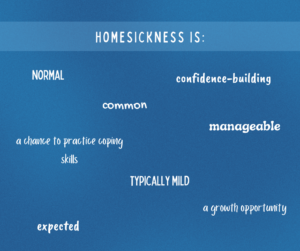 stretch that across three weeks or an entire summer. Our campers, staff, and families are all individually and communally experiencing this wide array of thoughts and feelings all throughout the season.
stretch that across three weeks or an entire summer. Our campers, staff, and families are all individually and communally experiencing this wide array of thoughts and feelings all throughout the season.
What does this mean for our campers’ letters?
Each letter your camper sends is a snapshot in time and emotion – not just a snapshot, but one of a moment that happened days prior (which feels more like worlds away at camp) by the time that letter arrives in your mailbox. We also need to recognize that along that spectrum of daily emotions, among the good and even the neutral, there are also many which are tough feelings. Working through these emotions are a function and benefit of camp and communal living – not a fault nor error. And here’s the good thing: homesickness is normal and typically mild. In a study of 329 campers, Dr. Thurber reported that about 83% of campers reported feeling homesick on at least one day of camp.
So, if and when you receive a letter with some tougher feelings, you can:
- take a deep breath and remind yourself that this is natural, okay, and expected
- ground yourself – take care of your own emotions before writing a response, and call us if you need help in that process
- reply with encouragement and celebration of their resilience, appreciation for communicating their feelings, and highlighting the good in their letter
- take it into perspective – was this letter written at a time that was situationally difficult, like their first night away from you, a time when they experienced disappointment, etc.?
- offer a topic change or a shift in perspective in your response
- if you have concerns about something serious communicated in your child’s letter, email their Head of Cabin (HOC) or give us a call
How often to write your camper
It is likely clear to our camp families that there is a level of ‘too few’ letters for our campers to receive. Getting no letters while at camp, especially as a new or younger camper, can make children feel anxious about home and their family’s well-being, and can cause feelings of being left out when seeing their bunkmates receive mail.
How many of us also realize that there is a such thing as ‘too many’ letters?
Hear us out – receiving letters daily, especially multiple per day, can potentially turn into an emotional crutch for campers, and make it more challenging for them to truly disconnect and fully experience camp and engage in our community. This can jeopardize some of the biggest benefits of camp: learning to self-regulate, find their own place in a larger community, and practice resilience while being ‘away’. Trust us that your camper will have no shortage of trusted adults in their camp community, and we want to encourage campers to communicate with their counselors, HOCs, and directors when those big feelings come along.
To help your camper feel just connected enough, here are two quick tips:
- consider sending a letter a few days before camp starts for them to receive on the first full day of camp with encouraging words
- depending on their age, send your camper to Runoia with a healthy number of pre-addressed and stamped envelopes to write home
What to write in a letter
- Help your child process those tough emotions with phrases like:
- “that sounds really tough – I’m so impressed with you for working through that and telling me about it.”
- “your feelings are normal, and I promise you everyone is feeling the same way or has before.”
- “you sound ____ (sad/homesick/disappointed/etc.), have you told a counselor or adult about it?”
- “what have you tried when you feel ____ that has helped you feel better?”
- “I know if you work through this, you will have so much fun and be more confident coming back next year.”
- “I am confident you can do this – I believe in you.”
- “give yourself some more time – the days will start to fly by.”
- Once you’ve acknowledged your camper’s feelings at the beginning of your letter, move on to asking questions about camp to help her reach a better headspace by the end of your letter. Help your child ground herself when they write their next letter by asking specific questions, like:
- “what are your counselors’ names?”
- “who are your roommates, and what are they like?”
- “what is your favorite thing you’ve done at camp so far?”
- “what is one thing you’re looking forward to this week?”
- “what’s one activity you’ve tried and loved?”
- “what’s one thing you accomplished this week?”
- “how have you been a good friend to another camper?”
- Talk with your camper about some go-to coping skills that work for them before leaving for camp, then help remind them of them. This will be unique to each child, but might look like:
- “the next time you feel that way, tell a trusted adult at camp.”
- “stay busy – what book are you reading right now?”
- “how can you relax when camp feels a little crazy?”
- “enjoy your rest hour today – slow down and write in your journal or make a bracelet.”
What not to write in a letter
If you’ve read our family handbook, you know that we stress just how important it is to never make ‘the pick-up deal’ prior to camp or in a letter. It can be hard to not know exactly how your child is feeling at all times, and certainly even tougher to get an emotional letter. Our instinct is to save the day, but when we resist that urge, we’re encouraging resilience and resourcefulness in our children – one of the main benefits of camp. Here’s a quick list of what to avoid when writing a letter home:
- avoid writing back immediately if your camper’s letter has heightened your own emotions – let yourself regulate before sitting down to reply
- don’t write about how much you miss your camper or the family fun she’s missing out on while at camp
- don’t write about sad family news – if it’s big news, call camp and we’ll create a communication plan together
- don’t promise anything – promises to pick your child up or for them to call home are not promises you can keep, and only give your child false hope and prevent them from managing their own emotions
There you have it – the language of letters, the Runoia way. There is no perfect formula to letter-writing, and each camper is different, but if you follow these guidelines, you will be supporting your camper to work through their tough emotions, self-regulate, and get the most they can from their short few weeks at Camp Runoia.
And in between each letter you write and receive, remind yourself that there are countless smiles, giggles, and skills gained – so many, your camper can’t fit them all in one letter. Check our photos on your dashboard every few days, keep an eye to our social media and blogs, watch your email for our newsletters – you might catch an amazing experience that she forgot to mention in that snapshot moment of missing home.
And don’t forget that also between each letter, your camper is loved, cared for, and encouraged by our staff, directors, and her community at Runoia!
Love,
Aionur
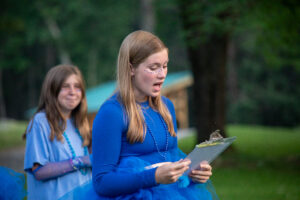
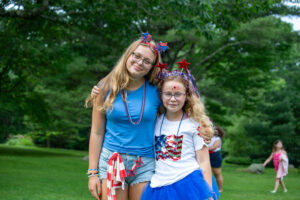

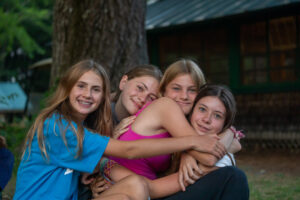
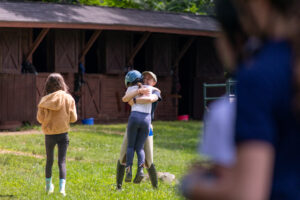
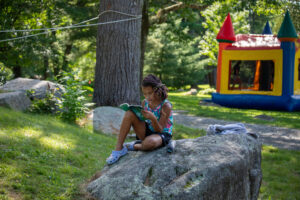
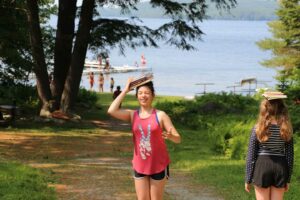
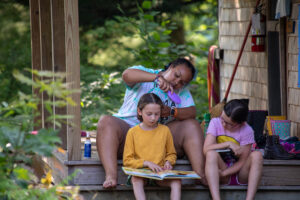
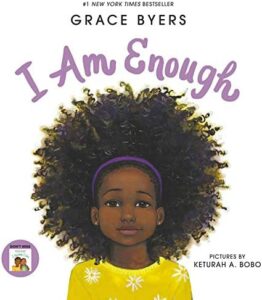
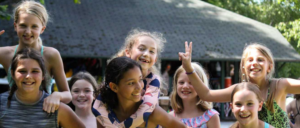
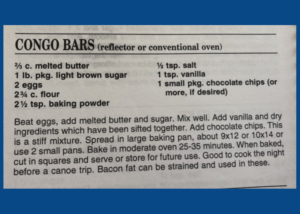
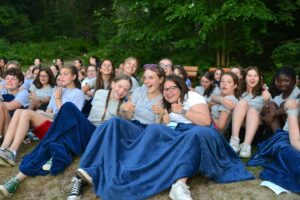
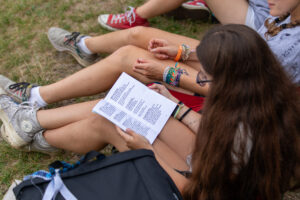
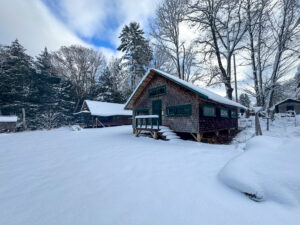
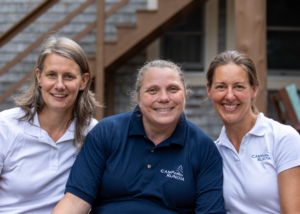
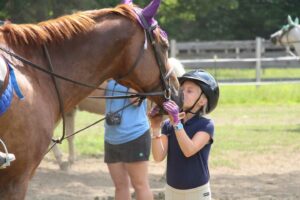
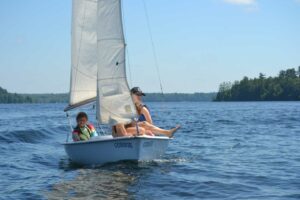 Pre-planned or elective?
Pre-planned or elective?